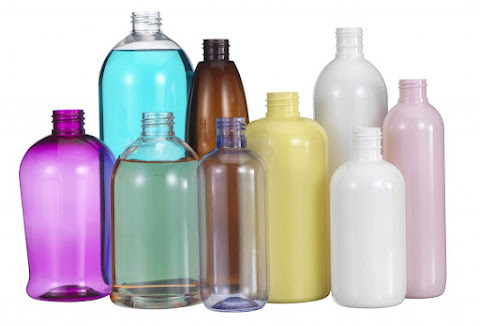How HDPE Bottles Pave the Way for Reusable Packaging?
The world is waking up to the urgent need for sustainable practices and eco-friendly solutions. Among the many challenges posed by single-use plastics, plastic bottles have become an environmental menace, contributing significantly to pollution and the degradation of our planet. However, there's hope on the horizon in the form of HDPE bottle, which offer a pathway to reusable packaging and a greener future.
Single-use plastic bottles have long been a symbol of convenience, but their convenience comes at a steep cost to the environment. The vast majority of these bottles are made from PET (Polyethylene Terephthalate), which can take hundreds of years to decompose. As a result, plastic bottles pollute oceans, landfills, and ecosystems, causing harm to marine life and wildlife. The need for change is evident, and HDPE bottle supplier offer a compelling alternative.The Environmental Impact of Single-Use Plastic Bottles
HDPE bottles are a type of plastic container made from high-density polyethylene. Compared to PET bottles, HDPE bottles are much more robust, making them ideal for repeated use and refill ability. Here are some key advantages of HDPE bottles:
- Durability: HDPE bottles are resistant to impact and do not shatter easily, making them safer for use in various environments.
- Lightweight: While HDPE bottles are sturdy, they are also lightweight, reducing transportation costs and associated carbon emissions.
- Chemical Resistance: HDPE is resistant to various chemicals, ensuring the safe storage of different products, including household cleaners and personal care items.
- Recyclability: HDPE bottles are widely recycled and can be transformed into new bottles, thus closing the loop and reducing the demand for virgin plastic.
The Rise of Refill Stations
One of the most promising aspects of HDPE bottles is their compatibility with refill stations. Refill stations are an emerging trend where customers can bring their reusable HDPE bottles to refill with various products like detergents, shampoos, lotions, and even food items like cooking oils. This system significantly reduces the need for single-use plastic packaging and fosters a circular economy approach.
Refill stations can be found in grocery stores, markets, and dedicated zero-waste shops. Consumers can bring their empty HDPE bottles, which are washed and sterilized before refilling, ensuring a safe and hygienic process. By promoting the use of HDPE bottles and refill stations, we can drastically reduce the production and waste of single-use plastic bottles.
Corporate Initiatives Towards Reusability
Several forward-thinking companies are already embracing HDPE bottles and reusable packaging as part of their commitment to sustainability. They have shifted away from traditional single-use packaging, offering customers the option to purchase products in refillable HDPE bottles. Additionally, some companies have introduced deposit systems, wherein consumers pay a small deposit for the bottle when they purchase the product. Upon return of the empty bottle, the deposit is refunded, encouraging customers to participate in the circular economy and motivate others to do the same.
Challenges and Solutions
Despite the promise of HDPE bottles and reusable packaging, there are still challenges to overcome. One challenge is consumer behaviour; transitioning from the convenience of single-use bottles to reusable options requires a shift in mindset and habits. Education and awareness campaigns can play a crucial role in encouraging consumers to embrace the change.
Logistics and infrastructure for refill stations also present a challenge, especially for smaller businesses. However, governments and organizations can provide support through incentives, grants, and partnerships to promote the adoption of refill stations and reusable packaging.
HDPE bottles are leading the charge towards reusable packaging and a more sustainable future. Their durability, recyclability, and compatibility with refill stations make them a viable alternative to single-use plastic bottles. By supporting refill initiatives and adopting reusable packaging, we can collectively reduce plastic waste, conserve resources, and protect the environment. Embracing HDPE bottles is a step towards a circular economy, where waste is minimized, and the health of our planet is prioritized. Together, we can pave the way for a cleaner, greener, and more sustainable world. For more details Contact Us now.





Comments
Post a Comment